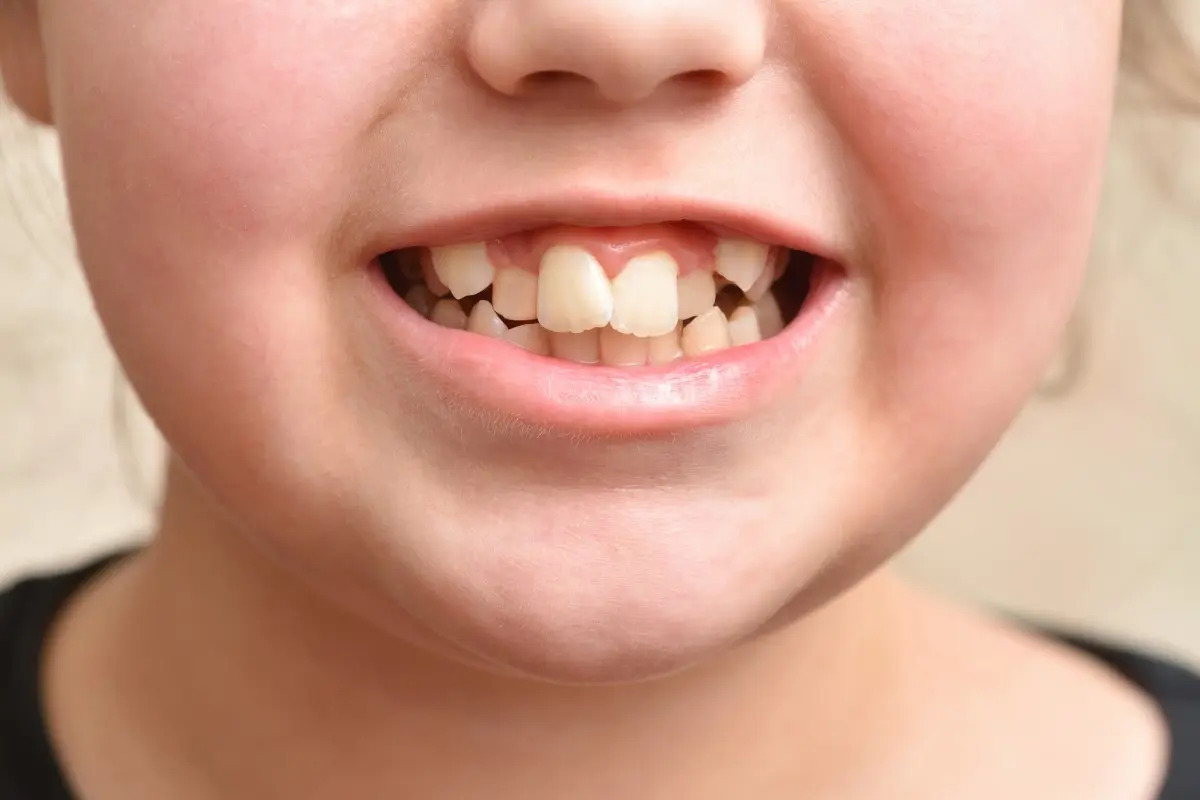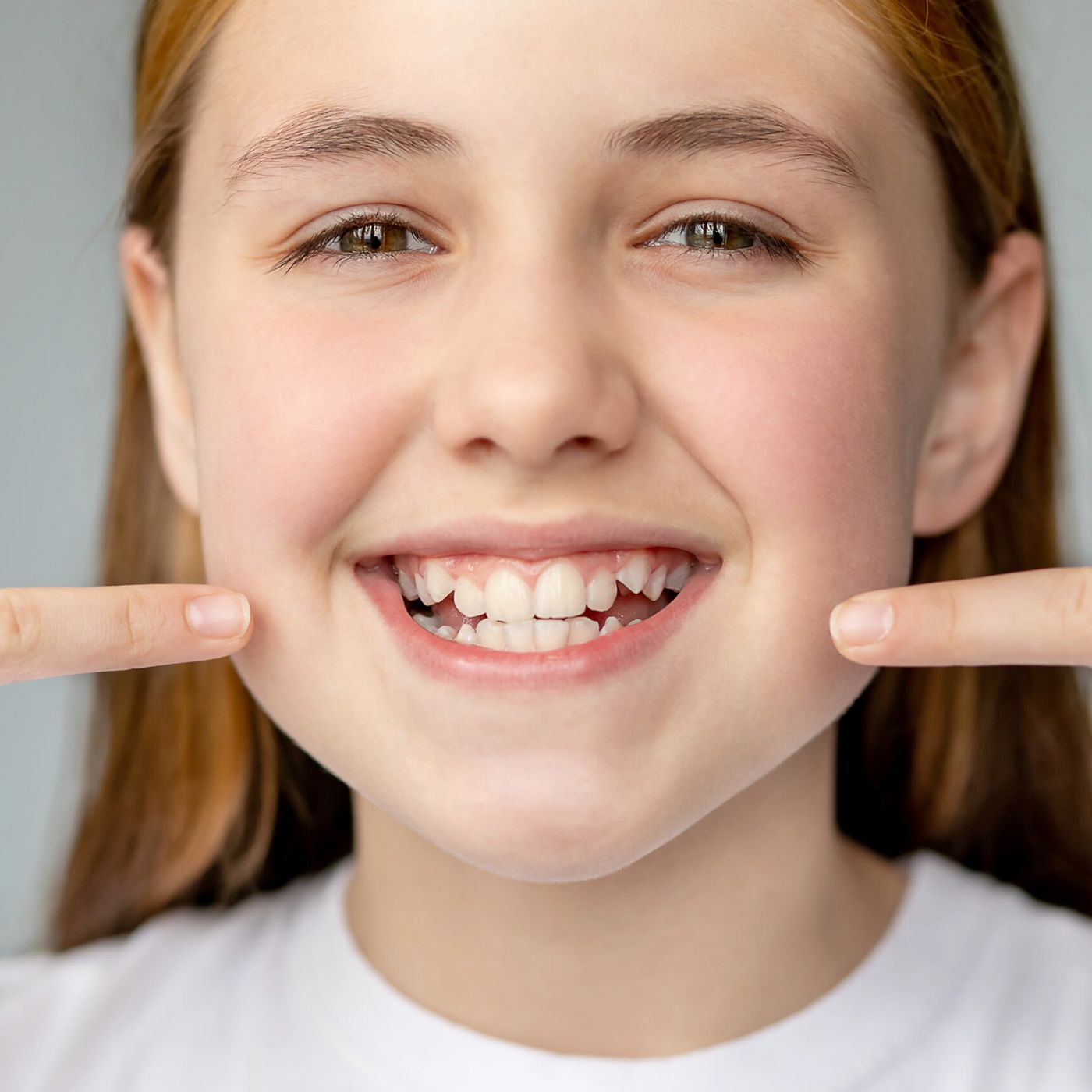Crooked Teeth
What are Crooked Teeth?
Crooked teeth are teeth that are misaligned, overlapping, twisted, or spaced irregularly. These alignment issues can affect both the appearance of your smile and your oral health. They may be caused by genetics, jaw size discrepancies, childhood habits, or injuries. Crooked teeth can make it harder to clean your teeth thoroughly, increasing the risk of cavities, gum disease, and uneven wear. Over time, misalignment can also lead to jaw pain or difficulty chewing, affecting your overall comfort.
At Alina Dental Clinic, we provide tailored orthodontic solutions to help straighten crooked teeth, improving both aesthetics and functionality for a healthier, more confident smile.

Common Causes of Crooked Teeth
Jaw pain can result from various issues, including TMJ disorders, teeth grinding, dental problems, injury, or stress. Identifying the cause is key to effective treatment and lasting relief.
Genetics
Inherited traits like jaw size or dental structure misalignments
Childhood Habits
Thumb-sucking, pacifier use, or tongue thrusting during early years
Tooth Loss
Losing baby or adult teeth causes neighboring teeth shift
Injury or Trauma
Accidents or jaw injuries can alter the alignment of teeth

Treatment Options for Crooked Teeth
At Alina Dental Clinic, we offer a range of treatments to correct crooked teeth:
- Braces: Metal or ceramic braces for gradual teeth realignment.
- Invisalign®: Clear, removable aligners for discreet and convenient orthodontic treatment.
- Retainers: Devices to maintain teeth alignment post-treatment.
- Orthodontic Surgery: For severe misalignments or bite issues requiring surgical correction.
- Dental Bonding or Veneers: Cosmetic solutions for minor alignment problems to improve aesthetics.
Schedule Your Dental Visit Today!
Book your appointment effortlessly and secure your path to a healthier, brighter smile
Help & FAQ
General Question
Lorem ipsum dolor sit amet, consectetur adipiscing elit, sed do eiusmod tempor incididunt ut labore et dolore magna aliqua. Ut enim ad minim veniam quis nostrud
Lorem ipsum dolor sit amet, consectetur adipiscing elit, sed do eiusmod tempor incididunt ut labore et dolore magna aliqua. Ut enim ad minim veniam quis nostrud
Lorem ipsum dolor sit amet, consectetur adipiscing elit, sed do eiusmod tempor incididunt ut labore et dolore magna aliqua. Ut enim ad minim veniam quis nostrud
Lorem ipsum dolor sit amet, consectetur adipiscing elit, sed do eiusmod tempor incididunt ut labore et dolore magna aliqua. Ut enim ad minim veniam quis nostrud


Quick Help & Info
Find answers to your most common dental questions and concerns. Get quick and helpful solutions to address your oral health needs and improve your smile.
If you experience persistent jaw pain, difficulty moving your jaw, or recurring headaches, it’s important to consult a dentist. Early treatment can prevent further damage and alleviate discomfort.
Yes, stress can lead to jaw pain by causing muscle tension and jaw clenching. This can worsen existing jaw issues and contribute to TMJ disorders or teeth grinding.
Yes, an injury to the jaw, such as a blow to the face or whiplash, can cause jaw pain and misalignment, leading to discomfort and difficulty moving the jaw.
Jaw pain is typically diagnosed through a detailed examination by a dentist or a TMJ specialist. X-rays, CT scans, or MRI may also be used to assess the jaw joint and detect underlying issues.
